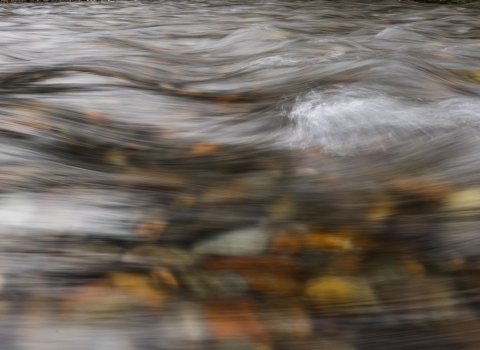Carla Burnside, coordinator of the U.S. Fish and Wildlife Service Cultural Resource Inventory, Monitoring and Protection Program, traveled to Cambodia in February to serve as a U.S. government expert on the State Department’s Cultural Antiquities Task Force.
The task force aims to combat illegal antiquities trafficking in the United States and abroad.
During the Cambodian Civil War (1970-1975), the Communist movement known as the Khmer Rouge conducted widespread looting of temples to fund the war, smuggling items across the Thai border for sale to private collectors and museums worldwide.
Since 2003, the United States has had a Memorandum of Understanding (MOU) with the Government of the Kingdom of Cambodia restricting exports of Cambodian archaeological material from the Bronze Age through the Khmer Era.
The Antiquities Task Force trains experts to fight illegal antiquities trading. It also supports the efforts of local governments, museums and preservationists around the world in the protection, recovery and restoration of stolen cultural antiquities.
In February, the task force, working in collaboration with the Cambodian Ministry of Culture and Fine Arts, hosted a one-week workshop in the Cambodia capital, Phnom Penh, and in Banteay Meanchey Province on the border with Thailand. The workshop brought together 40 cultural heritage experts, heritage police and customs officers to build stronger connections and to improve investigative techniques and procedures used to probe cultural property crimes at archaeological sites and museums.
Task force trainers from the U.S. Department of State, Federal Bureau of Investigation, U.S. Fish and Wildlife Service and the Tennessee Valley Authority shared expertise with their Cambodian counterparts and learned about the challenges they face in protecting Cambodia’s rich cultural heritage.
Through lectures and hands-on field exercises, participants improved their skills in cultural heritage site monitoring, documentation of damage and looting and criminal investigative techniques. This workshop sets the stage for additional site security training and community engagement that will be conducted later this year at the pre-Angkorian UNESCO World Heritage Site of Sambor Prei Kuk. That training is made possible by the Cultural Heritage Center’s Cultural Property Agreement Implementation Grants Program.
Cultural Property Agreements between the U.S. and partner countries promote a clean art market in the United States, demonstrate U.S. respect for other countries’ history and culture and expand access to cultural treasures by encouraging the lawful exchange of cultural property through exhibitions and scientific study.
Burnside says she was pleased to share the knowledge she gained as a federal employee working on ARPA cases so that Cambodian archaeologists and law enforcement officers can improve prosecution of their cases. ARPA, passed in 1979 and amended in 1988, sets standards for the excavation of archaeological sites on federal and Indian lands in the United States, and the removal of artifacts from those sites.
“National wildlife refuges contain incredible cultural resources,” said Burnside. “When cultural resources are disturbed in violation of ARPA, we lose the opportunity to use science to interpret not only culture, but ecological changes that have occurred in the past.”
Burnside plans to continue sharing her expertise and helping with international training. She adds that “it says a lot that our small agency is willing to share the skills of its employees internationally!”


